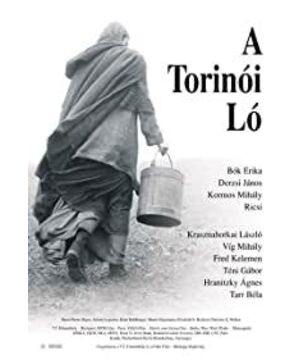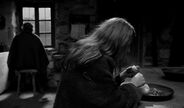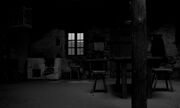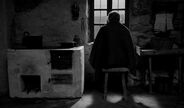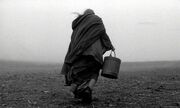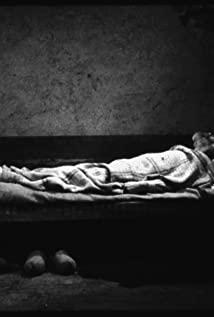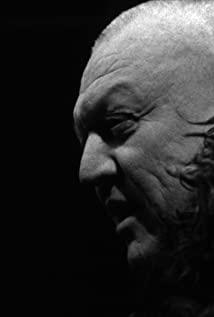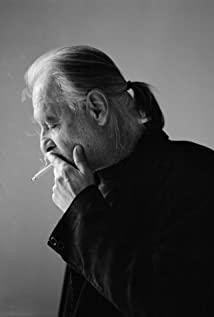On January 3, 1889, Friedrich Nietzsche was in Turin's Piazza Carlo Albert when he saw a coachman whipping an old horse that didn't want to move. But something broke Nietzsche's whole spirit for a moment. "Mom, I'm so stupid." Nietzsche murmured the last complete sentence of his life, holding the horse and crying. Was it the empty, desperate neighing of the old horse, or the cynic ruthlessness of the coachman? Maybe both, maybe not only. Afterwards, Nietzsche lived for ten years in the collapsed spiritual world, and then died.
This is the story of Nietzsche and the Horse of Turin, and the opening remarks of the movie "The Horse of Turin".
It is impossible to verify whether this legend is a fact or a romanticized imagination of later generations of great philosophers, or it is meaningless. Nietzsche's philosophical system was fully formed before it met the horse of Turin, and its collapse is not necessarily related to the horse. So, what does the Horse of Turin mean to Nietzsche? Hungarian director Bela Tarr's final film, The Horse of Turin, appears to be discussing this issue. However, contrary to the dramatic principle of "The Gun of Chekhov", a film with a horse as its title and beginning with a horse does not give an answer until the end.
The Horse of Turin is a dark, depressing, lengthy film. It begins with a grim narration of the legend of the horse of Turin, and then introduces the story of a father and daughter in a closed place with no time, no place, no cause and effect, no logic, no end; The story of a father and daughter who are boring and poor, living day after day in desolation, until the world begins to shrink and rot, and finally perish.
The film can be said to be the inversion of Genesis in the Bible. God created the world in seven days, created matter from nothingness, established order, and turned everything from nothingness into existence. In Turin Horse, it took six days for the world to be destroyed. Bella Tarr chose a symbolic six days to return everything to chaos and escape into nothingness.
The protagonist's coachman and his daughter live in a barren land, which is a lifeless and seemingly unsurvivable land abandoned by God. who are they? Why live here? from where? Where to go? Tarr did not explain any background, leaving only an empty place without God. My father is somewhat disabled, and only one side is physically active. The daughter takes care of her father's daily living and dressing, and boils potatoes with the same water to make a living. Then the two chop wood, drive horses, fetch water, do laundry, sit by the window and stare at the empty desert... Day after day, repeating the same thing The barren landscape, without communication, without purpose.
On the first day, the father and daughter of the coachman repeated a meaningless life, but the shackles in the slum house suddenly fell silent after 58 years of continuous screaming. This was the beginning of life and death . Father and daughter ignore everything in isolation. No waves or surprises, father, daughter and their horses maintain the final dry balance here.
The next day, the old horse suddenly refused to work, and he was still indifferent despite how the coachman beat him. This was the last labor of the old horse's life and the beginning of the world's degeneration. This day the wine merchant came home, bringing the hurricane that destroyed the town, the news that everything was beginning to fall, and the words of God: Humans judge themselves, God is involved, they are constantly touching, and they will fall when they keep touching, and they are getting Post-fallen, acquired in the fall, in various ways, cunning or rude or gentle or cruel, and those who are excellent, great and noble should not participate in it and resist, so they slowly disappear, they stop at this moment, forced to Understand the fact that there is neither God nor God , but they are at a loss but still do not give up; they, the great and noble, may be rulers or gods or merchants or Brahmins or artists, that is, all who do things according to the past experience of mankind, in Realizing that there is no good or bad in the world, vaguely aware of the truth, knowing that their logic is not valid as the basis of their principles, and the moment they allow everything to fall without preventing destruction from happening, they burn up and go out... ·
On the third day, a group of gypsies broke into the father and daughter's yard to snatch water, causing another accident. Meanwhile, the old horse went on a hunger strike, a sign that life was dying.
On the fourth day, the father and daughter had no water, and the elements for life were exhausted. They packed their bags and wanted to leave to find a new life. They climbed up the mountain and found that the mountain was still a mountain, and nothing but nothingness, so they had to return to the house. , return to desperation.
On the fifth day, the lights went out and the light disappeared. The world of the coachman father and daughter has basically collapsed, sliding into the abyss with everything.
On the sixth day, the daughter also went on a hunger strike. The father tried to make her eat, just as she tried to make the horses eat, but to no avail. This is a signal of extinction. At this time, the daughter flipped through the book of revelation from the Gypsies and found that the world is exactly what it said, the judgment of mankind comes, and everything will fall into darkness. So far, the world is destroyed, God is dead, and there is no ending . The film ends in a way of "nothing is gone", leaving a black hole of despair.
Every day in the film is a node, which is the reverse process of God's creation, that is, God's death.
There are almost no lines in the whole film, some only have the whistling wind and the cello music that is constantly repressed.
When talking about Nietzsche's nihilism, we have to talk about director Bella Tarr and the Nietzschean elements he buried in the film. Only the narration at the beginning of the film mentions Nietzsche, but his thoughts are not separated from Nietzsche, and at the same time, separated from the text, rarely confirming foreign texts, and conveying ethereal thoughts in the language of the camera. As Sontag said: "What we need is never a further assimilation of art to thought, or art to culture."
Bela Tal's works can mostly reflect the post-socialist life in Hungary. In my humble opinion, that is, the emotional aspect of Hungarian youth who are disoriented after realizing that they may be poor for a lifetime, and look for value in the right wing. But obviously Tal's pattern doesn't stop there. He uses symbolic metaphors to make his films not only show Hungary, not only contemporary, but even people. The protagonists in his works are often poor and marginalized people, like the father and daughter of the coachmen in the Horse of Turin. Although Tarr's films are black and white and the atmosphere is depressing, he is not a pessimistic artist. He often borrows a "depressed" film to implicitly express the theme of maintaining human dignity and respecting life . After reading the analysis of related films, I noticed that when Tal aimed the camera at the coachman, his daughter and the horse, he mostly used an upward -looking perspective. Its tall and tough side.
Tarr's narrative techniques also all reflect Nietzsche's nihilism. The whole article talks about horses, but does not respond to what horses are. This is a typical anti-narrative technique. The reaction of the coachman father and daughter is just as unconcerned about the reaction of the coachman and his daughter as Tal doesn’t care about the audience’s reaction when an unidentifiable liquor dealer utters rambling words. The wine dealer's words implicitly mirror Nietzsche's nihilistic assertions, but they are taken away from the text and imitated in the same general sentence. The two important ideas in Nietzsche's nihilism are binary opposition and deconstruction, which have become two themes in narrative technique: breaking the order and creating opposition. Human survival and the world's death, two tasks are opposed; outdoor raging sandstorms and indoor calm and dry, two environments are opposed; dead silence without dialogue and cyclic suppression of piano sounds, two voices are opposed; the legendary illusory Turin horse and father The horse on a hunger strike between the two women, the real and the false; the repeated life of the father and the daughter and the intruders who constantly break the rules, the old order and the new order are opposed... The film does not answer why it is necessary to try hard to live, people Why was born tragic, cutting into existentialism without answering, constantly decentralizing and de-essentializing, and typically opposing Platonic metaphysics, this is also one of the elements of Nietzsche's nihilism that will be mentioned later. In addition, the endless repetition of the film can also reflect Freud's view of compulsive repetition, which is characterized by being out of the control of the subject and not concerned with harm. During the filming process, Tarr's instruction to the actors was to "repeatedly", so that the father and daughter in the film did not have any room to turn around, so that the repetition of life was beyond the controllable range of the protagonist, and the repeated life completely wiped out the meaning of life. , let them fall into the abyss step by step, letting themselves go without caring about the consequences of all destruction, that is, the harm to themselves.
Next, the content of the film's story will not list the embodiment of Nietzsche's nihilism, first of all to talk about what Nietzschean nihilism is.
The prelude to nihilism and Nietzsche's most famous theory, "God is dead." The book "Happy Science" said: "Don't we smell the rotten stench of divinity? Even the gods are rotten! God is dead, God is really dead!" The moment when God dies, is awakening The moment religion does not exist is the moment when the old order is found to be destroyed, the moment when the structure of the world is changed, and the moment when the meaning of past existence collapses. In Marx's point of view, God is dead means that people no longer seek illusory happiness, but turn to seek real happiness. But from Nietzsche's point of view, God's death means the end of the meaning of value, and then a turning point will come: either you are obliged to promise, dare not create value for life, and die together with the old order; or you become God yourself and give your own life to yourself. Create meaning and create a higher history for future generations . Those who make these two choices are the two types of people in Nietzsche's theory: the former is the last man, and the latter is the superman. The last person is the "end-of-the-way person", who can't find the value of existence, does not make changes, is born in nothingness and will die in nothingness. perish in silence. The father and daughter of the coachman in the film are typical last people, and they are the negative teaching materials in the concept of Nietzsche and Tarr. Superman, on the other hand, defies authority, thinks and acts independently, is brave, strong, imaginative, and powerful, without timidity and shrinking. "Can't we make ourselves gods, even if it just feels like it's worth a try? There is no greater deed - and thus our posterity will live in a higher history than ever before!" it says here is Superman.
Thus, God is dead, superman is born, superman is the meaning of the earth.
The wine dealer's words in "Horse of Turin" are metaphors for the last man, and what he said burns out is the last man who was at a loss and died after discovering that God was dead. They stay away from resistance and creation. After realizing that there is no good or bad in the world, they also do not exist. They continue to rely on human past experience to judge and do things, and eventually degenerate and die in a pale life.
At this point, we can jump out of the film and explain Nietzsche's nihilism from a more popular perspective. For example, religious beliefs make up the lie of the existence of God, so that people's judgment of value is beyond the limited life, and instead they have a desire for eternity, have fantasies about the other side of the world , and firmly believe that there is an unknown stage after this one-sighted life. At this time, the meaning of the believer's life is to look forward to the next stage. But when it is suddenly known that God is dead, "then there is no then", the lies of God and the other side are exposed, and then it is easy to escape into nothingness. Therefore, Nietzsche criticized the metaphysics of the other side of the world, that is, the metaphysics of Platonism. The belief in the other side led to the suppression of vitality. Finally, nihilism has a broad and popular definition: " Everything that denies the value of life and makes vitality decline is nihilism ."
When it comes to nihilism, perhaps we have to mention Sartre, Camus, Schopenhauer, Dostoevsky and others. In discussing Nietzsche's philosophy of the superhuman, contrast Schopenhauer's voluntarism with Camus' absurdism.
Schopenhauer's voluntarism is the will to survive , that is, "wille zum leben", only to live for self-preservation and reproduction, which leads Schopenhauer to Buddhist asceticism. And Nietzsche's will lies in the will to power , namely "wille zur macht", the key lies in the display of vitality, the blooming of vitality. As he himself said: "Whoever will shake the world will keep silent for a long time; whoever will ignite lightning will drift like a cloud for a long time." Superman's philosophy lies in giving full play to the will to power and showing creativity and vitality.
Camus' absurdism has something in common with God is dead. "The Fence of the Absurd" wrote: "Time carries us to go, but one day it must carry time to go, we live by the future." Painful resistance is absurd." Both absurdism and superhuman philosophy are about resistance , and resistance to death or loss of meaning is the basis for overcoming nihilism.
Finally, when we have a rough idea of what Nietzsche's nihilism is, we are able to derive a methodology for combating nihilism. What we want to break is God's lie, what we want to follow is a superhuman philosophy, and we want to redeem ourselves. Nietzsche was a staunch anti-Christian. He believed that Christianity was a religion of sympathy. What he sang and praised was the will to power, his own vitality and the spirit of Dionysus. He maintained human dignity and respected life . Christianity, Platonism and Schopenhauer all follow the morality of slaves and dare not create the value of life for themselves. On the contrary is the sharp edge of cracking nihilism: master morality, that is, superman creates the value of life by himself in the barren land, and redeems himself by himself . Mr. Lu Xun is a loyal follower of the master's morality: "A true warrior dares to face the bleak life and the dripping blood." Superman is a warrior. Slave morality is the decay of life, and master morality is the release of life.
All in all, Nietzsche spent his whole life sung about the power of life, advocating the will to power, and believing in the supremacy of dignity and creativity. Going back to the beginning, some people may ask: since Nietzsche believed in the morality of the master, why was he defeated by the horse of Turin? Perhaps the beaten horse made him go from believing that the human will is strong and tenacious to discovering that the personal will is being insulted by left and right, and then doubt the will to power and fall into the trap of nihilism. What we can learn from this is that we firmly believe in the will to power, dare to be a superman, and do not doubt our own vitality, so that we are invincible and become God ourselves.
To quote Romain Rolland, "There is a kind of heroism, that is, after recognizing the truth of life, still loving life."
View more about The Turin Horse reviews


